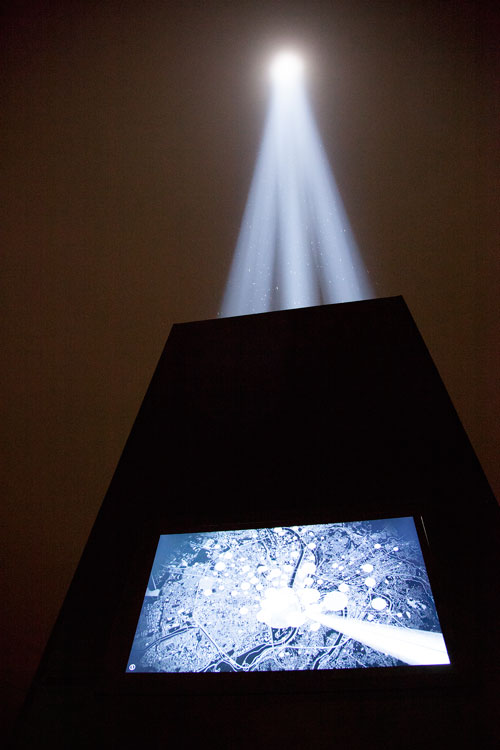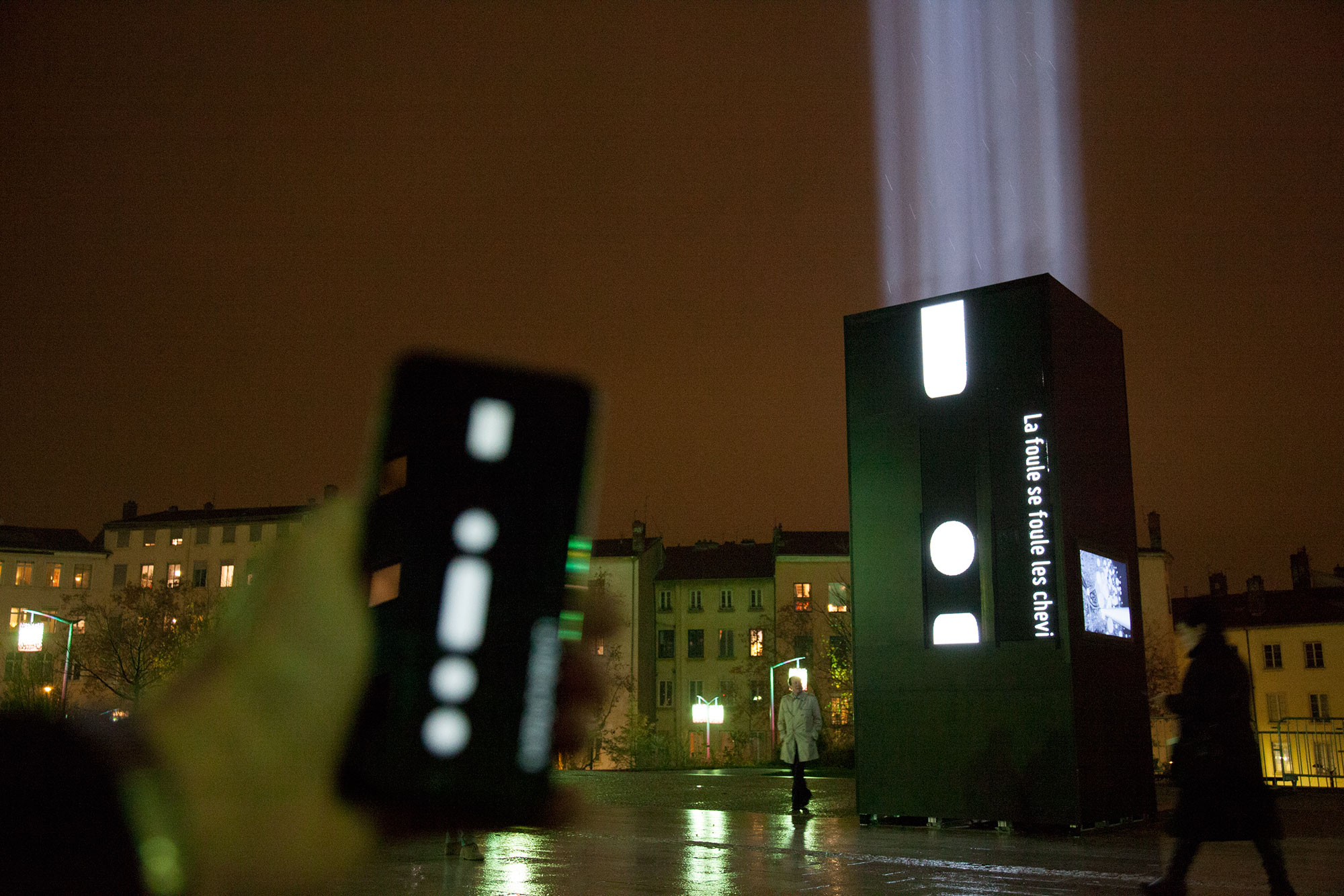Lyon celebrates Light in Morse code with “Surexposition”
Published 15 December 2014 by Laurent Catala
A giant beam in Morse code illuminated the sky of Lyon for the traditional Festival of Lights. “Surexposition”, under the leadership of the artist Samuel Bianchini, in partnership with Orange Labs and the Ensad lab. Visitors’ SMSs were collected to show and hear the “pulse of the city”.
From the 5th to the 8th of December, during the Lyon’s Festival of Lights, Surexposition could not go wrong. Visible from all parts of the city, a huge white beam in Morse code rose up into the sky from a black monolith, equally impressive, placed at the top of the Croix-Rousse hill. Besides their monumental appearance, these signals dispatched at a very high altitude translated messages sent via the mobile network by a community of ephemeral users using the dedicated downloadable application.
Placed directly on the monolith, next to the re-transcription of transmitted messages, a map in real time of the activity of the Orange network of Lyon allowed you to better visualise this strange “taking the pulse of the city” initiative. This was achieved through teamwork between different labs under the direction of the artist Samuel Bianchini, teacher-researcher at EnsAD, Higher national school of decorative arts in Paris.

“The project relies on an Orange-EnsAD partnership”, says Samuel Bianchini. “Orange, with financial support and a research collaboration via Orange labs, and EnsAD, with Ensad lab, our research lab, and in particular the research programme I am leading, Reflective Interaction, and the Large Group Interaction, themselves committed to the research programme Cosima (a research programme on collaborative and interactive media based on the most recent web and mobile technological developments).”
Community methodology
If the use of Morse code, “one of the first remote technological communication languages” according to Samuel Bianchini, has an incidence on the nature of the project, by “its graphical and rhythmic elegance, able to be transformed into different types of signals, light but also sound – which should be the case for a future version of Surexposition”, not forgetting the black monolith, “a near archetypal elementary shape of the black box as well as the monument”, its essential logic lies in the community dimension that the synergy of the Orange user network underlies.
“It is the core of a project that can under no circumstances be reduced merely to a simple installation” summarises Samuel Bianchini. “This community dimension can also include a religious secondary nature in the most basic sense: what links us to the heavens and amongst ourselves. It made sense, in any case, in the context of the Festival of Lights which in the first place was religious festival.”
It is also a community logic or at least a collective logic that is found in the methodology of the research programme Reflective Interaction. Several singular creations should follow soon, such as this intriguing MissB Kit, a “toolkit to prototype and experiment in behavioural objects”.

